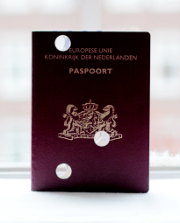
On 9 November Dutch tech journalist and author Daniël Verlaan hacked the online lighting system of the Erasmus Bridge in Rotterdam. Although he went for the colour pink, most people said it looked more like purple, but that’s besides the point.
In a tweet he claims that the lighting system had been accessible to everyone for a year, and there wasn’t even a password protecting it. That fact is very interesting since his very first book just came out and is aptly called ‘Ik weet je wachtwoord‘ (‘I Know Your Password’). Verlaan got the tip from a white hat hacker who pointed the wide open bridge system out to him. Using the keyword ‘Rotterdam’, the open system showed up in one of the first results on search engine Shodan.io, made for smart devices. The system was accessible online using an IP, protected by an easy to circumvent login.
The city of Rotterdam has now taken the system offline. And the lights are only for special occasions.
(Link: rtlnieuws.nl, Photo of Erasmus Bridge by Joop van Houdt – Beeldbank.rws.nlSome rights reserved)




 In 2011 Dutch web certificate company DigiNotar was compromised completely by an Iranian hacker, and a report released this week details how it was done.
In 2011 Dutch web certificate company DigiNotar was compromised completely by an Iranian hacker, and a report released this week details how it was done.
 Last December, Paul Wiegmans from Alkmaar
Last December, Paul Wiegmans from Alkmaar